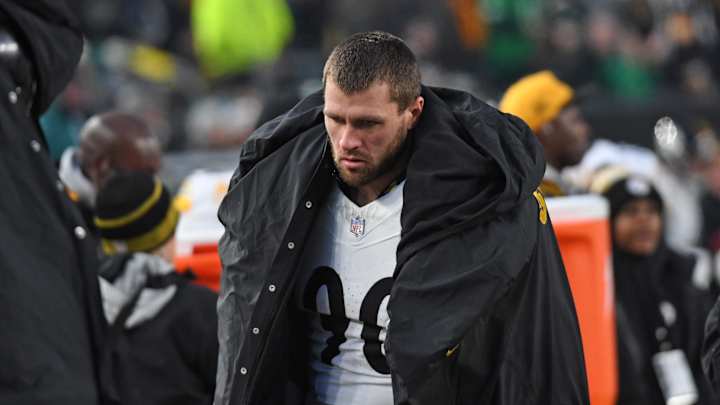The Pittsburgh Steelers made headlines this week with a major move that has divided fans and analysts alike. Star edge rusher T.J. Watt, long considered the heart and soul of Pittsburgh’s defense, has signed a massive three-year extension with the franchise. The new deal, which averages $41 million per year, makes Watt the highest-paid non-quarterback in NFL history, edging out Cleveland Browns defensive end Myles Garrett by $1 million annually.
While many in the football world have praised the Steelers for locking down one of the most dominant defensive players of this era, not everyone is convinced it was the right move. One of the harshest critics of the extension is FOX Sports analyst Nick Wright. Speaking on First Things First, Wright called the deal a mistake—not because of Watt’s individual performance, but due to what he sees as the Steelers’ overall lack of roster direction and long-term planning.
“The Steelers are gonna continue to have eight, nine wins,” Wright said. “Their path out was recognizing, and they weren’t gonna do this once Aaron Rodgers signed, but to trade T.J. Watt, get great capital for it, and eventually get a quarterback. Instead, they do this. I think it’s a mistake. I also think T.J. Watt, I don’t know where he is as far as career arc.”
Wright’s comments strike at the heart of a broader debate about the Steelers’ team-building strategy. Watt, undeniably elite, has been a force since entering the league, amassing multiple All-Pro selections, a Defensive Player of the Year award, and double-digit sacks in nearly every season. But his stellar individual contributions haven’t translated into postseason success for the Steelers, who have not won a playoff game since the 2016 season.
From Wright’s perspective, paying Watt top-tier money without addressing deeper structural issues—most notably at quarterback—amounts to investing in a ceiling that doesn’t get the team much further than .500. With no consistent presence under center and a shaky offensive line, critics argue that Pittsburgh should have taken a bolder approach: trading Watt while his value was sky-high in exchange for premium draft capital, potentially positioning themselves to land a franchise quarterback and hit the reset button.
The idea of trading Watt is controversial, but it isn’t entirely without merit. A trade could have netted multiple first-round picks or a combination of high-value selections and young players, offering Pittsburgh the kind of long-term flexibility that’s difficult to obtain with a massive contract on the books. However, there’s also risk—draft capital doesn’t always translate to future stars, and the Steelers’ recent draft history has been inconsistent at best.
On the flip side, keeping Watt sends a message. It reaffirms Pittsburgh’s commitment to defensive excellence and stability. Watt isn’t just a statistical monster—he’s a locker room leader, a fan favorite, and a symbol of the Steelers’ identity. Losing him could have created a vacuum that the front office might struggle to fill.
Ultimately, the question comes down to vision: are the Steelers trying to stay competitive in the short term or rebuild for a new era? Time will tell whether this extension becomes a cornerstone of a resurgence—or a costly roadblock on the way to a true rebuild.

